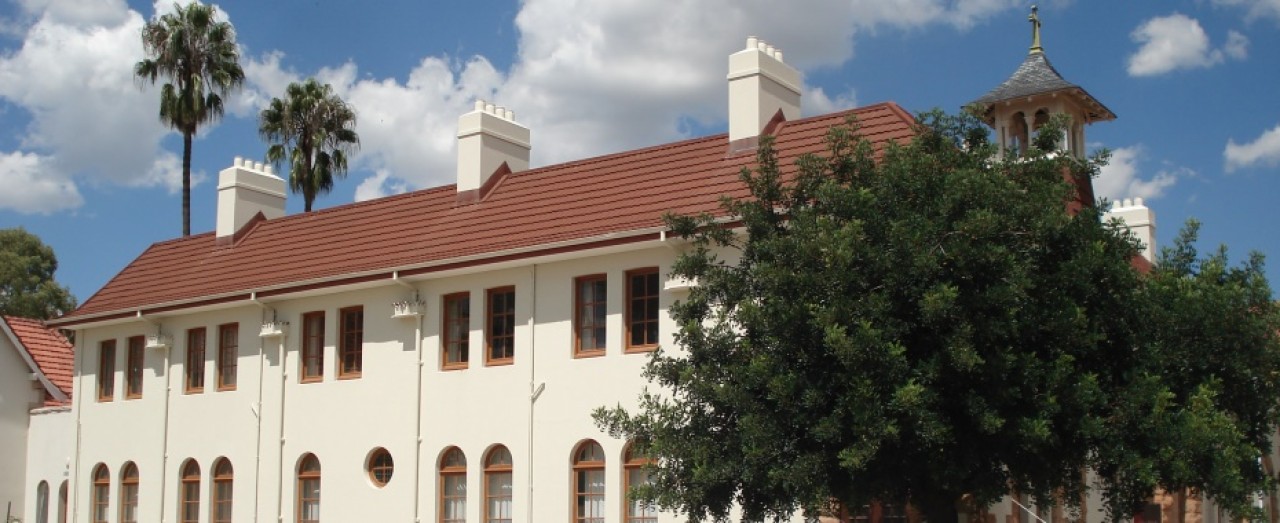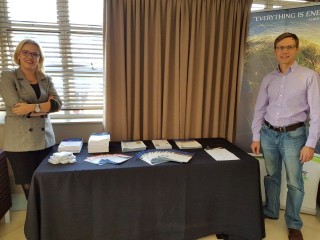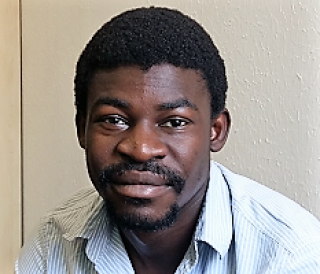
Newsletter of Department of Economics 2018 2 - Second half of semi annual newsletter

Research Highlights

Reference was made to Gupta et al’s article on partisan conflict and market volatility in the AAII journal (American Association of Individual Investors) on 25 January 2018
“Even with last weekend’s government shutdown, no agreed-upon budget and yet another debt ceiling increase needed, the major U.S. indexes continued to set record highs. While Mr. Market’s ongoing calm mood may seem paradoxical given what’s happening inside of the Beltway, one study suggests it is normal for volatility to be low.
The study’s authors (Rangan Gupta et. al) analyzed the S&P 500 index’s volatility in relation to partisan conflict over the period of January 1981, through April 2017. Partisan conflict was measured by tabulating the number of headlines referring to political disagreement among U.S. politicians. The headlines were pulled from The Washington Post, The New York Times, the Los Angeles Times, the Chicago Tribune, and The Wall Street Journal. Volatility was measured using a statistical analysis of fluctuations in the S&P 500’s returns.
Gupta and his co-authors found the negative impact of partisan conflict on relative volatility “is more pronounced when the former increases from an initial value moderately below or above the median, with [the S&P 500’s volatility] being lower than its normal state.” One reason why this would be the case is the inverse impact that higher partisan conflict has on economic policy uncertainty. The more politicians disagree with each other, the less likely they are to push through legislation affecting the economy. The study’s authors further suggest that partisan conflict “at least causes market agents to perceive a possible reduction in economic policy uncertainty, and, hence, a fall in market volatility.”
The state of the economy also plays a role. Conflict during expansions reduces relative volatility. During expansions, investors perceive that partisan conflict will not lead to a change in economic policy. Alternatively, a forthcoming paper cited in this study raises the possibility of uncertainty about economic policy being lower during expansions. During recessions, partisan conflict can increase volatility particularly if the level of conflict is quite high. The study’s authors theorize the “increased partisan conflict, especially if it is quite high, is likely to result in a policy change and volatility tends to rise, as a result of increased policy uncertainty.” http://www.aaii.com/files/investorupdate/20180125.html?a=blog20180126
- Author: Editor of AAII journal
Prof Jan van Heerden was asked by the Center of Policy Studies (CoPS) at Victoria University in Melbourne to write a chapter in a book on water modelling in the world.
He is co-authoring the chapter with his former PhD student, Nick Kilimani and two colleagues from CoPS. The proposed title of the chapter is “Any rain on Victoria Lake is only a drop in the bucket: a CGE analysis of the effects of droughts on food security in Uganda”.
In the chapter they use a dynamic national CGE model of Uganda to simulate possible severe impacts of droughts on their important agricultural crops. Various sources from the environmental economics literature have consensus that most crops would be adversely affected in the next forty years by increasing temperatures and decreasing precipitation. The authors use forecasts from the literature of ten specific crop outputs and simulate their effects on the rest of the economy, with particular interest in the effects on food security in Uganda. They define food security and discuss the current state of it in Uganda and find that Uganda is far from being food secure. Their hypothesis is that if the pessimistic forecasts from the literature would become true, the situation would deteriorate significantly. The adaptation strategies for Uganda should be threefold: they should diversify agricultural production to include more hardy crops; expand the manufacturing industry considerably, and develop the water infrastructure so that households and agricultural industries could get better access to it.
- Author: Prof Van Heerden
Prof Roula Inglesi-Lotz and Dr Heinrich Bohlmann and their team of co-authors evaluate the economic impacts of the country’s expected transition to a low-carbon energy supply mix.
Prof Roula Inglesi-Lotz, Dr Heinrich Bohlmann, from the RE3M (Research in energy and environmental economics and modelling) Renewable energy modelling unit of the Department, and their team of co-authors evaluate the economic impacts of the country’s expected transition to a low-carbon energy supply mix. The updated Integrated Resource Plan (IRP) of South Africa was announced in August and the transition towards a cleaner low-carbon energy supply mix has slowly started becoming a reality for the country. Such a transition has been associated with societal benefits, environmental improvement and economic development, linked with job creation and eradication of poverty. At the same time, the South African geographical conditions, distribution of energy developments and natural resources contribute to the variety of consequences and impacts of the changing supply mix.
To undertake their work, they use a regional Computable General Equilibrium (CGE), developed in collaboration with researchers in Australia. They find that there are likely to be negative consequences on the labour market, especially in provinces such as Mpumalanga where the coal-fired electricity generation is primarily concentrated. Furthermore, the magnitude of the impact will depend on global coal markets. This research originated from the researchers’ involvement with the South African Association for Energy Economics (SAAEE) and has, so far, resulted in a published ERSA working paper.
- Author: Prof Inglesi-Lotz
Dr Nicholls and colleagues continue their research in behavioural economics on choice on behaviour of feedback on decision making under uncertainty
Dr Nicholls is extending some of her previous work on the impact of feedback on decision making under uncertainty. Specifically, she is investigating how beliefs about uncertain outcomes change, when people receive additional information about the outcome, along with the effect of that information on choices and behaviour. To evaluate this in an applied setting, she is collaborating with researchers at Wits University to look at how students’ beliefs about their performance changes with feedback (results from tests/assignments). They are also investigating how students’ behaviour (approach to studying for the course) changes with such feedback. The researchers are particularly interested in seeing whether students are more likely to change their expectations/beliefs, or whether they will change their behaviour, in order to conform to their initial beliefs. For example, if test/assignment feedback suggests that a student is not likely to achieve the grade he/she originally anticipated, will they work harder to ensure that they do achieve that grade, or will they adjust their expectations downwards?
- Author: Dr NichollsWelcoming new department members

Dr Jesse Naidoo recently joined the department from the University of Chicago's Harris School of Public Policy,
Dr Jesse Naidoo recently joined the department from the University of Chicago's Harris School of Public Policy, where he was a postdoctoral fellow. Before that, he completed his PhD in the department of economics at the University of Chicago. He describes his tenure at Chicago as follows: “A highlight of my graduate studies was the chance to take courses in price theory from Gary Becker, and in labor economics from James Heckman. I will always appreciate the opportunity to participate in the legendary Applications of Economics workshop, where the best economists in the world come to present their work and subject it to thorough - and often deeply insightful - examination. I am also grateful for the chance to see up close the intense focus and seriousness of purpose that many Chicago economists, including my advisor Derek Neal, brought to their scholarly work.”
- Author: Dr NaidooPost doctoral research

Dr Tumisang Loate (Fafung, South Africa)
After an undergrad BCom IT and BCom Honours Economics at the University of Johannesburg, she started a part-time MCom Economics at UP in 2012, whilst working mainly as a Process/Business Analyst in the banking sector. After completing her MCom, she was offered a South African Reserve Bank Chair in Monetary Economics PhD fellowship by her Master’s supervisor. The fellowship gave her the opportunity to change her career to Economics, and there will be no looking back. Although doing a PhD was not originally in her plans, the journey has had an enormous impact on her personal growth, her career opportunities and her outlook. During her postdoctoral tenure, she will be applying her interests in macroeconomics, banking stability, banking and household heterogeneity. Note: Fafung is a village outside Brits in the North West province.
- Author: Dr Loate
Dr Vincent Dadam (Cameroon)
After obtaining his BCom at the University of Ngaoundere in the Adamaoua province of Cameroon, he moved to South Africa in 2009 and joined the University of Pretoria in 2010 for his BCom Honours in economics. His PhD in economics from the University of Pretoria focuses on monetary policy and labour market issues. Now he is part of a diverse team of 4 post-doctoral researchers that are working under the supervision of the South African Reserve Bank (SARB) Chair in Monetary Studies at the University of Pretoria, Prof Nicola Viegi. Vincent will continue investigating and modelling the South African labour market, because it presents peculiar features in terms of the standards of advanced economies. He finds the post-doctoral fellowship hugely interesting, as it presents a great opportunity to combine both research and policy work through a collaboration with the SARB research team. Vincent has grown to love Pretoria, especially during Jacaranda blooming season.
- Author: Dr Dadam
Dr Kehinde Omotoso - Nigeria
After obtaining her B.Sc. Ed and M.Sc at the Obafemi Awolowo University, Nigeria, she moved to South Africa in 2015 for her PhD in Economics at the Department of Economics, University of Pretoria. Her PhD focuses on social determinants of health inequalities. She is currently a post-doctoral researcher working under the supervision of the Head of the Department of Economics, University of Pretoria, Prof Steve Koch. During her postdoctoral tenure, she will be applying her interests in South African health care system, social determinants of health and multidimensional perspectives in poverty-health care nexus. Kehinde has developed a peculiar bond and love for Pretoria because of its lovely and enabling landscapes.
- Author: Dr Omotoso
Dr Cyril Dell'eva (Marseilles, France):
His fields of research are macroeconomics and international finance, but his focus is the potential destabilizing effect of capital inflows in small open economies. He is particularly interested in carry trades that exploit the failure of the Uncovered Interest Parity (UIP), as this topic is relevant to South Africa and deserves investigation. He plans to include the failure of the UIP in a new Keynesian model of South Africa (adaptive learning could be an effective approach to model the UIP failure in the short run). Such a model would help to understand how capital flows induced by currency investments could affect the whole economy, which makes sense in terms of monetary policy implementation.
He has also begun an empirical project investigating whether carry trades affect the South African economy. The object is to consider whether order flows could be a good proxy for carry trades in South Africa. Then, if data reveal that they are, they could be used as a proxy to investigate whether carry trades affect the South African economy through credit, financial markets or none.
- Author: Dr Dell'eva
Dr Ekaterina Pirozhkova (Krasnoyarsk, Russia)
Her research areas are Macroeconomics, Monetary Economics and Monetary Policy. She analyses the process of financial intermediation and implications this process has on macroeconomy. She is particularly interested in examining the impact that economic uncertainty and various types of risks have on banks’ decisions to issue credit, because efficient credit allocation is one of the pillars of sustained economic growth. During her tenure at UP, she is planning to devise a framework that would allow the analysis of monetary transmission mechanisms while taking into account the potentially high levels of uncertainty of economic environment. She is optimistic that the results of her investigation will be useful for evaluating the effectiveness of the various measures of financial regulation, which are intended to support credit supply and to ensure stability of the banking sector.
- Author: Dr PirozhkovaDepartment of Economics Newsletter
Unsubscribe: [email protected]